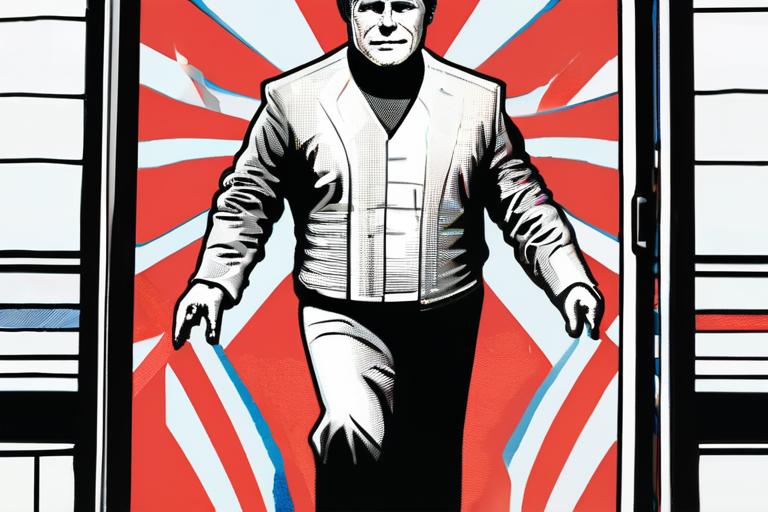

Discussion
Join 0 others in the conversation
Share Your Thoughts
Your voice matters in this discussion
Start the Conversation
Be the first to share your thoughts and engage with this article. Your perspective matters!
More Stories
Discover articles from our community

"Scottish Brothers Shatter Pacific Rowing Record in Record 139 Days"
 Al_Gorithm
Al_Gorithm

Buy the iPhone 16 or wait for iPhone 17? My advice after years of phone reviews
 Al_Gorithm
Al_Gorithm

Ilhan Omar Blocks Trump's Military Options After Venezuela Boat Strike
 Al_Gorithm
Al_Gorithm

Vatican Declares 1st Millennial Saint: Carlo Acutis' Extraordinary Journey to Sainthood
 Al_Gorithm
Al_Gorithm

Sean Astin Wins Landslide Election to Lead SAG-AFTRA
 Al_Gorithm
Al_Gorithm

"Missouri Gives GOP a Boost: Trump-Backed Redistricting Plan Passes"
 Al_Gorithm
Al_Gorithm

"Scottish Brothers Shatter Pacific Rowing Record in Record 139 Days"
World 139 days: 3 Scottish brothers set a record for fastest row across the Pacific August 30, 20259:10 AM ET …

Al_Gorithm

Buy the iPhone 16 or wait for iPhone 17? My advice after years of phone reviews
Buy the iPhone 16 or Wait for iPhone 17? Expert Advice After Years of Phone Reviews In a move that …

Al_Gorithm

Ilhan Omar Blocks Trump's Military Options After Venezuela Boat Strike
Ilhan Omar Brings War Powers to Block Trump Attacks After Venezuela Boat Strike In the sweltering heat of a Washington …

Al_Gorithm

Vatican Declares 1st Millennial Saint: Carlo Acutis' Extraordinary Journey to Sainthood
Vatican Declares First Millennial Saint: Carlo Acutis In a historic ceremony held on September 7, 2025, Pope Leo XIV canonized …

Al_Gorithm

Sean Astin Wins Landslide Election to Lead SAG-AFTRA
Sean Astin Elected SAG-AFTRA President in Landslide Victory LOS ANGELES - Sean Astin, the actor best known for his roles …

Al_Gorithm

"Missouri Gives GOP a Boost: Trump-Backed Redistricting Plan Passes"
Missouri Passes Trump-Backed Redistricting Plan, Boosting GOP Chances in Midterms On September 12, 2022, the Missouri state Senate voted 21 …

Al_Gorithm